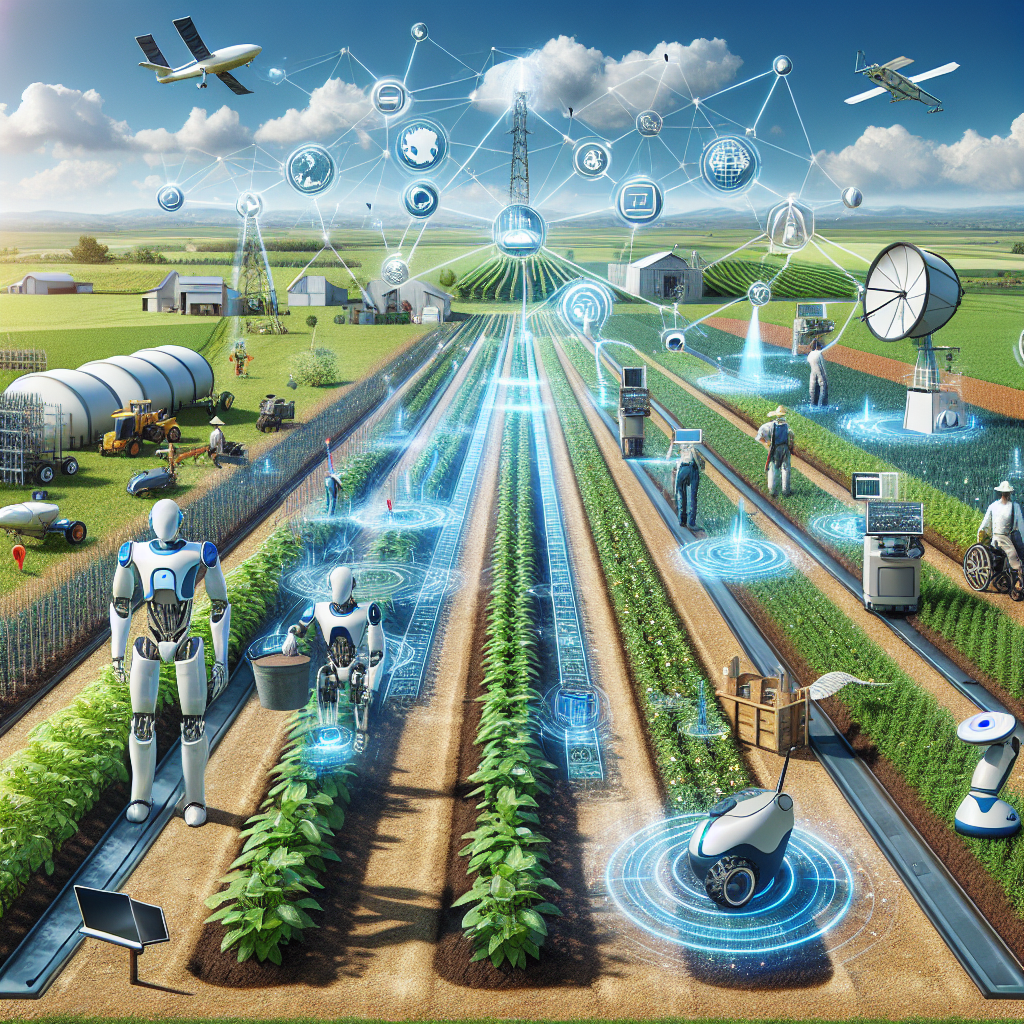Agriculture has always been a key industry for human civilization, providing sustenance and livelihood for billions of people around the world. With the global population expected to reach over 9 billion by 2050, the demand for food is expected to increase significantly. This presents a challenge for farmers to produce more food using limited resources such as land, water, and labor.
Fortunately, advancements in technology, particularly artificial intelligence (AI), are revolutionizing the way agriculture is practiced. AI can be used to optimize various aspects of farming, from planting and irrigation to pest control and harvesting. This has led to the emergence of precision farming, which aims to maximize crop yield while minimizing inputs and environmental impact.
The Role of AI in Agriculture
AI refers to the simulation of human intelligence in machines that are programmed to think and learn like humans. In agriculture, AI can be used in a variety of ways to improve efficiency and productivity. Some of the key applications of AI in agriculture include:
1. Precision farming: AI can analyze data from sensors, drones, and satellites to provide farmers with real-time information about their crops. This can help farmers make more informed decisions about planting, irrigation, fertilization, and pest control. By optimizing these processes, farmers can increase crop yield and reduce waste.
2. Crop monitoring: AI can analyze images of crops taken by drones or satellites to detect diseases, pests, and nutrient deficiencies. This allows farmers to take timely action to prevent crop losses and ensure healthy yields.
3. Climate prediction: AI can analyze weather data to predict climate patterns and help farmers make decisions about when to plant, irrigate, and harvest their crops. This can help farmers adapt to changing weather conditions and minimize the impact of extreme events such as droughts and floods.
4. Autonomous vehicles: AI-powered robots and drones can be used to perform tasks such as planting, weeding, and harvesting crops. This can reduce the need for manual labor and increase efficiency on the farm.
5. Supply chain optimization: AI can optimize the supply chain by predicting demand, managing inventory, and optimizing transportation routes. This can help farmers get their products to market more efficiently and reduce waste.
Improving Crop Yield and Sustainability with Precision Farming
Precision farming, also known as precision agriculture, is a farming management concept that uses technology to optimize crop production while minimizing waste and environmental impact. AI plays a crucial role in precision farming by providing farmers with real-time data and analysis to make informed decisions. Some of the key benefits of precision farming include:
1. Increased crop yield: By using AI to optimize planting, irrigation, fertilization, and pest control, farmers can increase crop yield and quality. This can help meet the growing demand for food and improve farmers’ profitability.
2. Reduced inputs: Precision farming allows farmers to use inputs such as water, fertilizer, and pesticides more efficiently. By applying these inputs only where and when they are needed, farmers can reduce waste and minimize environmental impact.
3. Improved decision-making: AI can analyze vast amounts of data to provide farmers with insights and recommendations for improving crop management. This can help farmers make better decisions about planting, irrigation, and pest control, leading to healthier crops and higher yields.
4. Environmental sustainability: By reducing waste and optimizing inputs, precision farming can help farmers minimize their environmental impact. This can lead to healthier soils, cleaner water, and reduced greenhouse gas emissions.
5. Cost savings: Precision farming can help farmers save money by reducing the need for inputs such as water, fertilizer, and pesticides. By optimizing crop management practices, farmers can improve their profitability and sustainability.
FAQs
Q: How does AI help farmers make decisions about planting?
A: AI can analyze data from sensors, drones, and satellites to provide farmers with information about soil conditions, weather patterns, and crop health. This can help farmers make informed decisions about when and where to plant their crops.
Q: How does precision farming improve crop yield?
A: Precision farming uses technology such as AI to optimize planting, irrigation, fertilization, and pest control. By applying inputs only where and when they are needed, farmers can increase crop yield and quality.
Q: How can AI be used to monitor crop health?
A: AI can analyze images of crops taken by drones or satellites to detect diseases, pests, and nutrient deficiencies. This allows farmers to take timely action to prevent crop losses and ensure healthy yields.
Q: What are the benefits of using autonomous vehicles in agriculture?
A: Autonomous vehicles powered by AI can perform tasks such as planting, weeding, and harvesting crops. This can reduce the need for manual labor and increase efficiency on the farm.
Q: How can precision farming help farmers reduce waste and environmental impact?
A: Precision farming allows farmers to use inputs such as water, fertilizer, and pesticides more efficiently. By applying these inputs only where and when they are needed, farmers can reduce waste and minimize environmental impact.

